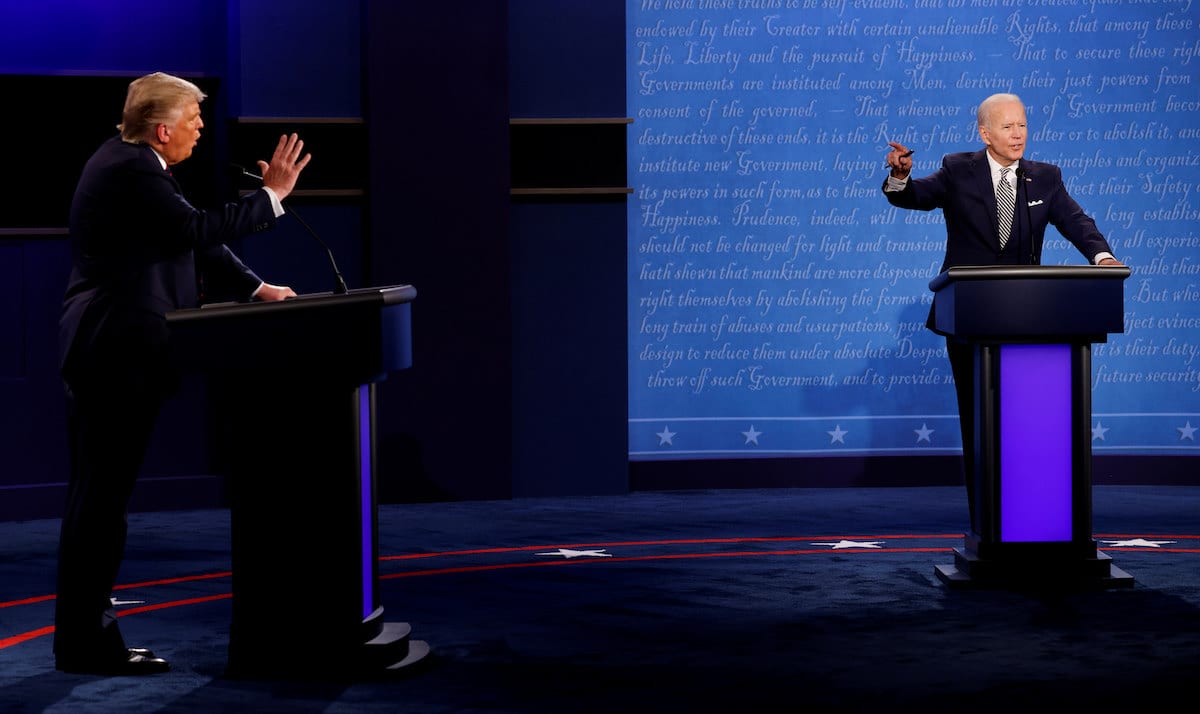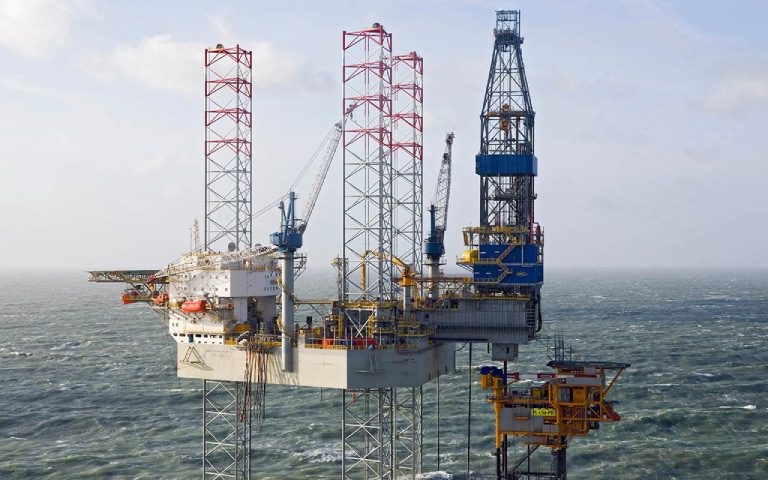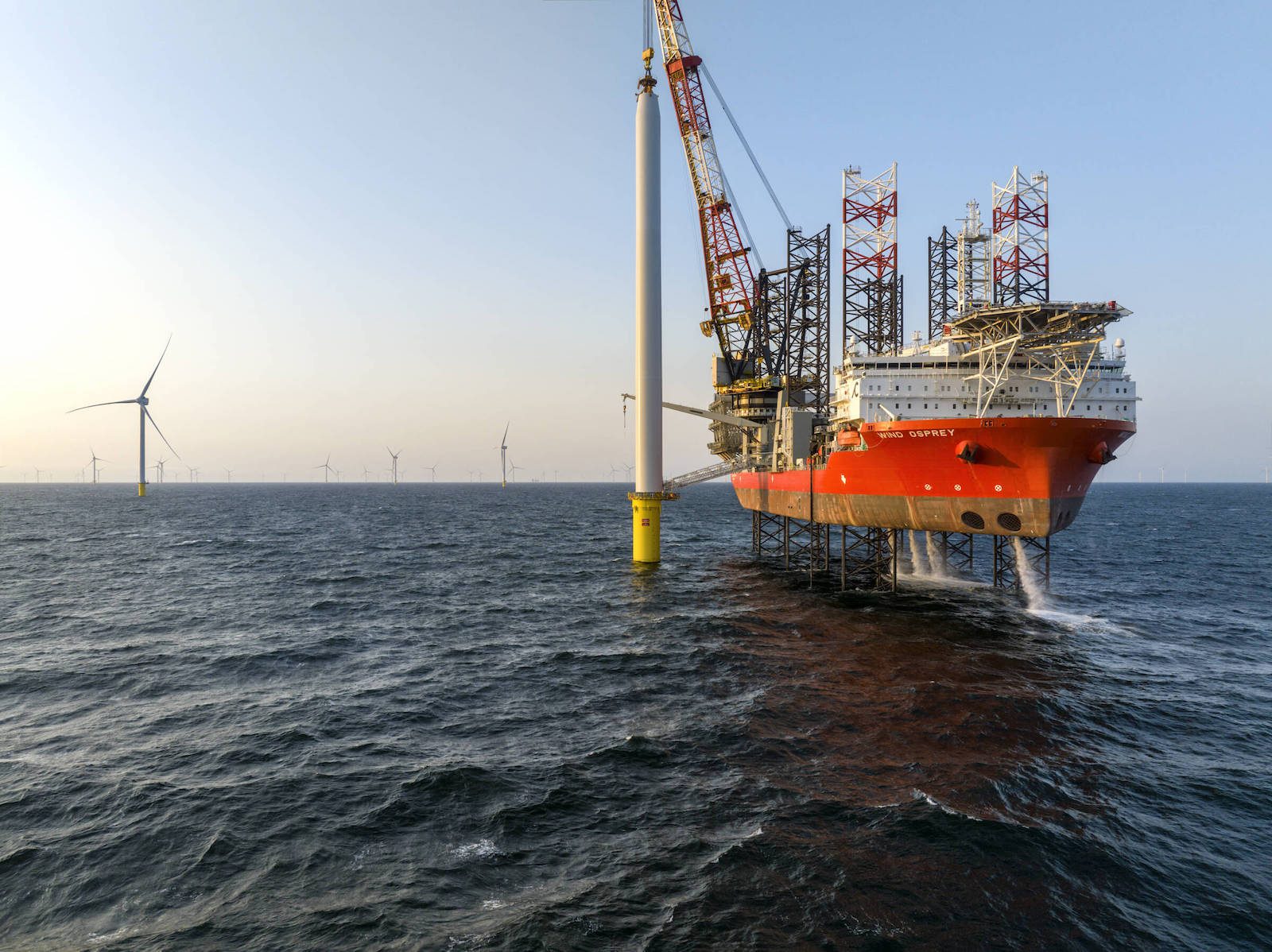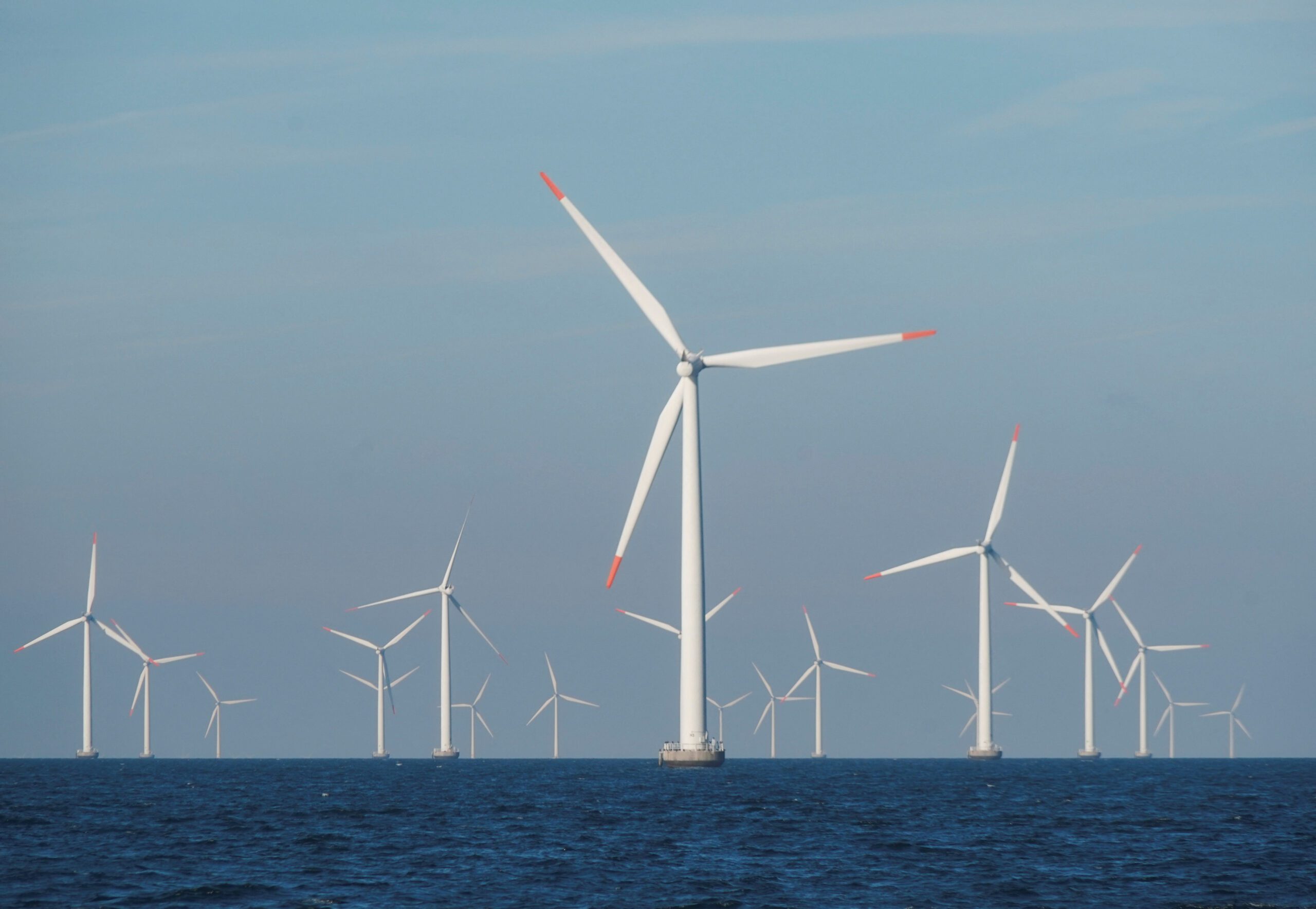FILE PHOTO: U.S. President Donald Trump and Democratic presidential nominee Joe Biden participate in their first 2020 presidential campaign debate held on the campus of the Cleveland Clinic at Case Western Reserve University in Cleveland, Ohio, U.S., September 29, 2020. REUTERS/Brian Snyder/File Photo
By Liz Hampton Oct 16 (Reuters) – The two largest U.S. energy firms, Chevron Corp CVX.N and Exxon Mobil Corp XOM.N, have increased their share of campaign donations to Democrats this year, according to the latest filings, amid a looming battle over fracking.
The vast majority, 85% of all oil and gas donations this election, have flowed on behalf of U.S. President Donald Trump, other Republican candidates and conservative causes, according to data from campaign researcher the Center for Responsive Politics (CRP).
However, oil majors have put more money into Democratic coffers as some polls show Democratic challenger Joseph Biden with as much as a 10 percentage point lead and a platform calling for the nation to transition to more renewable energy and an end to new fracking permits on federal lands.
Chevron contributed roughly 28% of its political funds to Democratic candidates this cycle, from 26% in 2016. Exxon sent 41% of its contributions to Democratic candidates and parties, up from 32.6% in the last presidential election, the data showed.
Chevron’s $4.9 million in spending is to “support the election of candidates who believe, like we do, in the value of responsible oil and natural gas development and organizations and measures that are aligned with our business interests,” said spokesman Sean Comey.
Exxon spent $1.7 million on contributions to all candidates and groups. The company did not respond to a request for comment.
Republicans hold the presidency and a majority of seats in the U.S. Senate.
U.S. oil and gas companies have poured $87 million into political spending this cycle, according to data available as of mid-September and compiled by CRP. That compares with $104 million during the entire 2016 presidential election, according to CRP. Voters will choose a president and 35 senators on Nov. 3.
Biden has pledged to shift the United States to net-zero carbon emissions by 2050, ban the issue of new fracking permits on federal lands, and to recommit the United States to the Paris Agreement, which seeks to limit the global temperature increase to 1.5 degrees Celsius this century.
Oil and gas companies anted up $86 million during the 2018 mid-term elections, which included energy ballot initiatives that attracted big donations. Arizona, Colorado, and Washington voters that year rejected separate efforts to curb fossil fuel use.
Pipeline mogul Kelcy Warren’s Energy Transfer Partners ET.N topped the list of campaign contributions this year from oil and gas companies. Warren’s firm has pumped some $13.9 million into this election cycle, up from $2.3 million in 2016, according to the CRP.
Warren controls the Dakota Access Pipeline, which transports crude oil from North Dakota to the Midwest and won Trump’s support via executive orders expediting the line. In June, Warren hosted a fundraiser for Trump at his Dallas home.
Koch Industries, an oil, chemical, and cattle conglomerate, was the second-largest donor at $10 million, according to CRP data. Run by conservative activist and philanthropist Charles Koch, the company donated a similar amount in 2016.
The Trump campaign and related outside groups have pulled in some $12.8 million from the oil and gas industry since 2017, according to the CRP. That is far more than the about $1 million Trump received during the 2016 election cycle.
Tom Pyle, president of advocacy group American Energy Alliance, said few thought Trump had a chance at winning in 2016. That year, some $10.4 million in oil and gas money went to former Florida Governor Jeb Bush, with U.S. Senator Ted Cruz and former Texas Governor Rick Perry collecting $2.8 million and $1.6 million, respectively.
Biden had pledged not to accept donations exceeding $200 from the fossil fuel industry but has taken $895,151 from individuals and PACs associated with the oil and gas industry, according to CRP data.
Reporting by Liz Hampton in Denver; Editing by Gary McWilliams and Marguerita Choy, Reuters
(c) Copyright Thomson Reuters 2020.

 Join The Club
Join The Club











